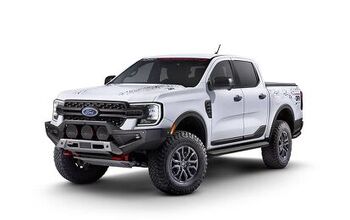Now That Mazda Is Eligible, Who Would Want Them?

Yesterday, we reported that Ford and Mazda will be parting ways completely, after having lived married, but separated for a while. Ford will retain a token “3 percent or less” interest, why is anybody’s guess. Question for Mazda: What now? In January, we said: “What Mazda needs are strong partners in strong markets.” Back when, the Nikkei [sub] thought Mazda could get closer with Toyota, based on the fact that Mazda decided to procure a hybrid system from Toyota. That alone doesn’t make for a marriage. You won’t marry Safeway, just because you shop there. Toyota wants to become the systems house for hybrids, just like BMW will sell its engines to anyone with money.
Today, The Nikkei [sub] states the obvious and says that Mazda “will likely need to find a new partner now that Ford Motor Co. has decided to drastically weaken the two firms’ capital ties.” Why? Another obviousity: “The global market is now too difficult for a modestly sized automaker like Mazda to survive on its own. And the search for new partner by a Japanese firm renowned for its small-car development capabilities could set off a new round of industry reorganization.” Aha, but with whom?
The Nikkei doesn’t have any eligible suitors on its list. No mention of Toyota. Instead of bachelors, The Nikkei sees a lot of trouble:
“The biggest challenge for Mazda lies in foreign operations. Its overseas plants — located in the U.S., Thailand and China — are all operated jointly with the American automaker. Mazda plans to split up its Chinese joint venture with Ford as a first step toward independence.”
A much bigger problem: Mazda’s small size. They are “aiming for global sales of 1.7 million units in fiscal 2015, up slightly more than 30 percent from the projection for fiscal 2010,” says the Nikkei. “But this trails even Italian firm Fiat SpA, whose annual sales of about 2.5 million units make the firm around 10th in the world.”
So who would want Mazda, assuming that they are on the prowl? Surely nobody in America. Volkswagen has Suzuki, a much better deal (India, China.) Renault has Nissan. The Chinese could buy a 30 percent controlling interest out of petty cash, but currently, such a move would be, how shall we put it , inopportune on both sides.
I’m out of options. What say you?

Bertel Schmitt comes back to journalism after taking a 35 year break in advertising and marketing. He ran and owned advertising agencies in Duesseldorf, Germany, and New York City. Volkswagen A.G. was Bertel's most important corporate account. Schmitt's advertising and marketing career touched many corners of the industry with a special focus on automotive products and services. Since 2004, he lives in Japan and China with his wife <a href="http://www.tomokoandbertel.com"> Tomoko </a>. Bertel Schmitt is a founding board member of the <a href="http://www.offshoresuperseries.com"> Offshore Super Series </a>, an American offshore powerboat racing organization. He is co-owner of the racing team Typhoon.
More by Bertel Schmitt
Latest Car Reviews
Read moreLatest Product Reviews
Read moreRecent Comments
- ToolGuy "I have my stance -- I won't prejudice the commentariat by sharing it."• Like Tim, I have my opinion and it is perfect and above reproach (as long as I keep it to myself). I would hate to share it with the world and risk having someone critique it. LOL.
- SCE to AUX Sure, give them everything they want, and more. Let them decide how long they keep their jobs and their plant, until both go away.
- SCE to AUX Range only matters if you need more of it - just like towing capacity in trucks.I have a short-range EV and still manage to put 1000 miles/month on it, because the car is perfectly suited to my use case.There is no such thing as one-size-fits all with vehicles.
- Doug brockman There will be many many people living in apartments without dedicated charging facilities in future who will need personal vehicles to get to work and school and for whom mass transit will be an annoying inconvenience
- Jeff Self driving cars are not ready for prime time.


































Comments
Join the conversation
TimCrothers, I call B.S. The models in question do share platforms, but that's it ("based on"). The point of platform sharing is to work from basic common dimensions/configurations and to customize the design for local conditions, the nitty gritty engineering is done by the respective companies. After all, Mazda engineers know a hell of a lot more of what Japanese customers want than Ford engineers. So Mazda engineers, for example took the Ford B3 platform (which they had a design hand in, btw) and made it suitable for Japanese (and similar European conditions). In the end, the Fiesta and Mazda 2 only share two parts (suspension related). I think Mazda engineers would be surprised to hear their thousands of man hours of design work were actually done by Ford engineers. http://www.sae.org/automag/globalvehicles/12-2002/
Mazda will likely end up owned by a Chinese company which is looking for know how, a globally recognized brand name and global distribution. All of the second tier automotive companies are prime candidates for that fate. If not China, then India or another aspiring auto maker.
We have already seen MG-Rover, Jaguar-Land-Rover and Volvo go that route. Hummer almost made it over the hurdle, but in the end there wasn't enough expertise being sold along with the brand name to make the deal worthwhile. China's government figured that out and killed the deal.